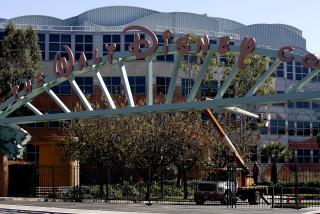Criticism of NYSE Chairman Heats Up
- Share via
NEW YORK — Criticism of New York Stock Exchange Chairman Richard Grasso and his $140-million-plus pay package intensified Friday and included new calls from several NYSE seat holders for his resignation.
Traders who work on the Big Board floor launched a petition drive to oust Grasso and other NYSE top brass, according to a trader who spoke on condition of anonymity. The group needs at least 100 signatures from the NYSE’s 1,366 seat holders to force a special meeting on Grasso’s tenure.
Grasso, however, retained the public support of most board members and Friday reaffirmed through a spokesman his intention to stay on the job until his controversial employment contract expires in May 2007.
Seeking to quell the furor, three NYSE directors set a meeting for Thursday to hear the grievances of floor brokers and traders. The session, to be held after the market closes for the day, was called by Robert B. Fagenson, vice chairman of Van der Moolen Specialists USA Inc., Christopher C. Quick, chief executive of Fleet Specialist Inc., and James M. Duryea, chairman of the floor brokerage firm that bears his name. They didn’t return calls for comment Friday.
The controversy exploded in late August, when the NYSE disclosed that Grasso would receive $139.5 million this year in accrued retirement and other benefits, plus a 2003 salary and bonus of at least $2.4 million.
The revelation prompted sharp criticism from Grasso’s predecessor, William H. Donaldson, who is now chairman of the Securities and Exchange Commission demanded a full description of the pay package and how it was approved.
The NYSE fueled the storm when it replied to Donaldson on Tuesday, disclosing that Grasso was due an additional $48 million under his 1999 contract. Grasso, at his board’s suggestion, said he would forgo the extra $48 million.
On Friday, Bernard Herold, a longtime owner of a seat on the exchange, called for Grasso’s ouster on grounds that he and his top executives were “vastly overpaid -- they’re making more money than the exchange.”
Herold, founder of brokerage Bernard Herold & Co., complained in an interview that the NYSE kept raising the fees charged to members and seat holders even as their trading revenues slumped during the recent bear market.
Through it all, Herold said, Grasso and his lieutenants collected large salaries and bonuses.
“That’s no way to run a business,” he said. “There ought to be a shakeup on the exchange.”
Herold’s call for Grasso to step down echoed those of veteran NYSE specialist trader James Maguire Sr. of LaBranche & Co. and James K. Rutledge, who has held an NYSE seat for 30 years.
Maguire, in an interview Friday with Bloomberg News, said that Grasso “has become an issue that makes it no longer tenable for the New York Stock Exchange to conduct its business.”
Maguire’s remarks will carry a great deal of weight on the trading floor not only because he is well respected there but also because he is known to have been a supporter of Grasso’s, according to one trader who spoke on condition of anonymity.
Others stopped short of calling for Grasso’s resignation Friday but nonetheless criticized his compensation and its handling.
Their objections concern not only the amount of Grasso’s pay but the secrecy that surrounded the approval process.
“I don’t think he should resign, but I think he should acknowledge that he could do the job for, say, $2 or $3 million,” said George E. Morris of Easton, Md., a retired broker and NYSE seat holder.
The Big Board continued to be sparing with disclosure Friday, declining to reveal the pay of its board members, including H. Carl McCall, head of the NYSE compensation committee, who has defended Grasso’s pay in recent days.
McCall did not return a phone call seeking comment.
More to Read
Inside the business of entertainment
The Wide Shot brings you news, analysis and insights on everything from streaming wars to production — and what it all means for the future.
You may occasionally receive promotional content from the Los Angeles Times.









